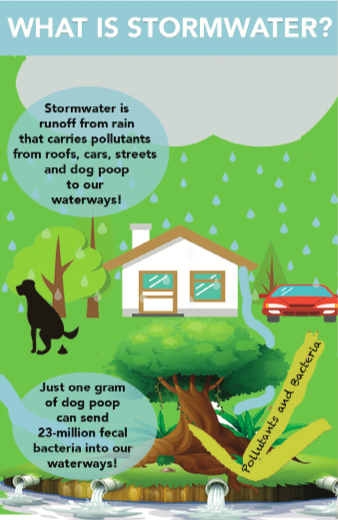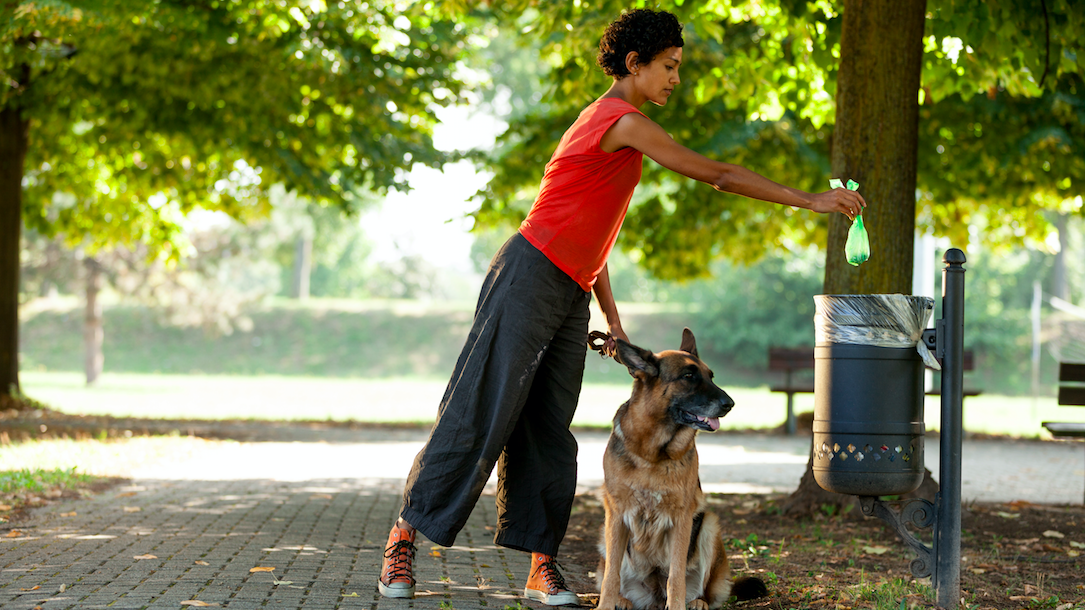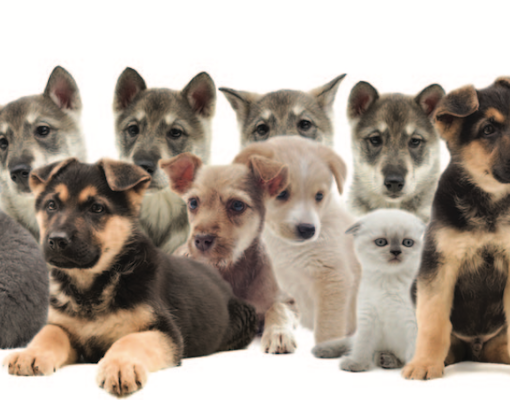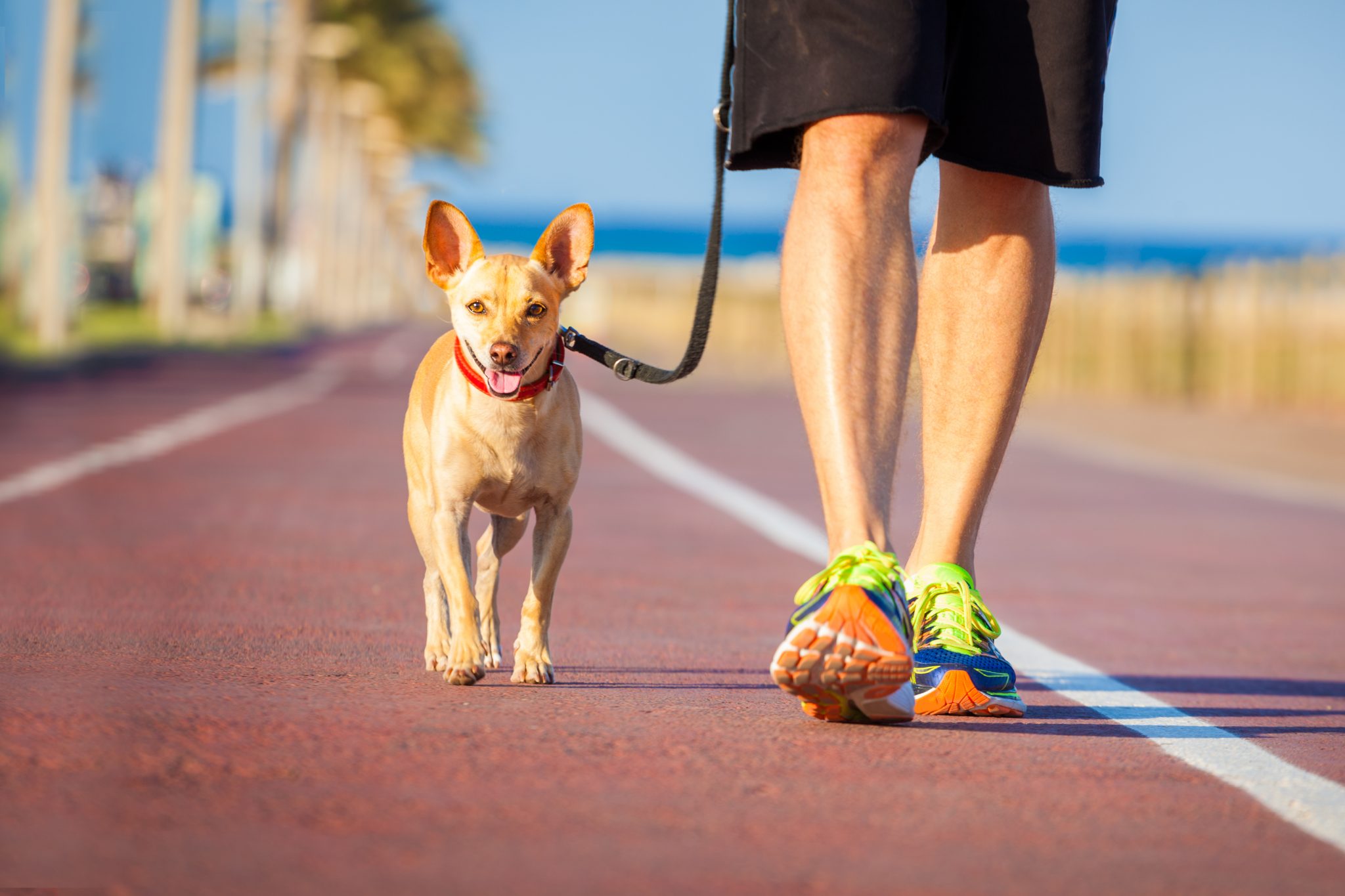YOU WON’T BELIEVE THE DAMAGE YOU’RE LEAVING BEHIND IF YOU DON’T.
By AMY SCARONI, PH.D.
LET’S JUST DIVE RIGHT IN: DOG POOP IS FULL OF BACTERIA, such as Fecal coliform, E. coli, and Enterococcus, along with viruses and unwanted nutrients – and it is ending up in our rivers, streams, lakes and oceans – because many of us aren’t picking it up.
Just one gram of dog poop can contain up to 23 million fecal bacteria! When those bacteria end up in our waterways, we end up with swim advisories, shellfish bed closures, and fish consumption advisories.
Scientists are able to use a technique called “microbial source tracking” to determine the source of the bacteria, and sure enough, dogs have often been identified as the culprit. Additionally, unwanted nutrients from sources such as fertilizer and pet waste can fuel the growth of algae. These algal blooms can create toxins that may be deadly to dogs who swim in affected waterways.
The Dangers of Poo
Out of sight, out of mind? Not exactly. Pollution in the water can affect the health of both humans and pets who enjoy spending time in and around water. Here in South Carolina, not only is stormwater pollution the main threat to our water quality, bacteria is at the top of the list.
So, who’s to blame? Since dogs can’t pick up after themselves, we can only point the finger at dog owners who neglect to do their duty!
Clemson Extension recently conducted a statewide survey of knowledge, attitudes, and awareness related to water quality, and results indicated that 75% of Charleston residents know that dog poop is a source of bacterial pollution to local waterways, but only 61% admit to always picking up after their dog.
There are many reasons people cite for leaving poop on the ground, but the biggest excuse we’ve heard is that people often don’t have a pet waste bag with them when they need it. This year, Clemson Extension’s Carolina Clear program decided to spread the reminder far and wide with an outreach campaign reminding people to “Be Prepared. Always Bring a Bag!”
Keep an eye open for this message on billboards and in commercials throughout the state. If you still have trouble remembering your bag, try clipping a bag dispenser to your dog’s collar, tie a few bags to the leash, or leave some bags in your coat pocket (maybe make it your New Year’s Resolution).
After the Pickup
It’s also important to remember to throw the bag away once you’ve scooped the poop. Filled bags belong in a trashcan, not tossed down the storm drain where they create clogs that lead to flooding.
It is also a common mistake to drop them into yard waste bags and lawn clippings, which ends up contaminating municipally-sourced compost. Certainly, dog poop could be composted using special digesters, but most city or county compost made from yard waste collections do not reach a high enough temperature during composting to kill off the fecal bacteria and pathogens.
Just Bag It!
Most of us would do anything for our dogs, and one of the biggest gifts we can give them is a clean environment where they can live and play. Picking up your dog’s poop every time, and properly disposing of it, will help to keep our waterways safe
Dr. Amy Scaroni is an Assistant Professor of Water Resources at Clemson University. She lives on James Island, SC with her dogs Rosie and Charley.
CHARLESTON RESIDENTS
75% of us know dog poop carries bacteria.
61% of us don’t always pick it up!
WHAT IS STORMWATER?
When rain falls, impervious surfaces such as sidewalks, driveways, and roads prevent rainwater from soaking into the ground. As it flows across those surfaces, the water picks up various bacteria from pet waste (and other pollutants), then sweeps them into a storm drain, which ultimately drains directly into local waterways. Carolina Clear is Clemson Extension’s statewide stormwater education program. Find out more ways you can protect water quality at: clemson.edu/carolinaclear






